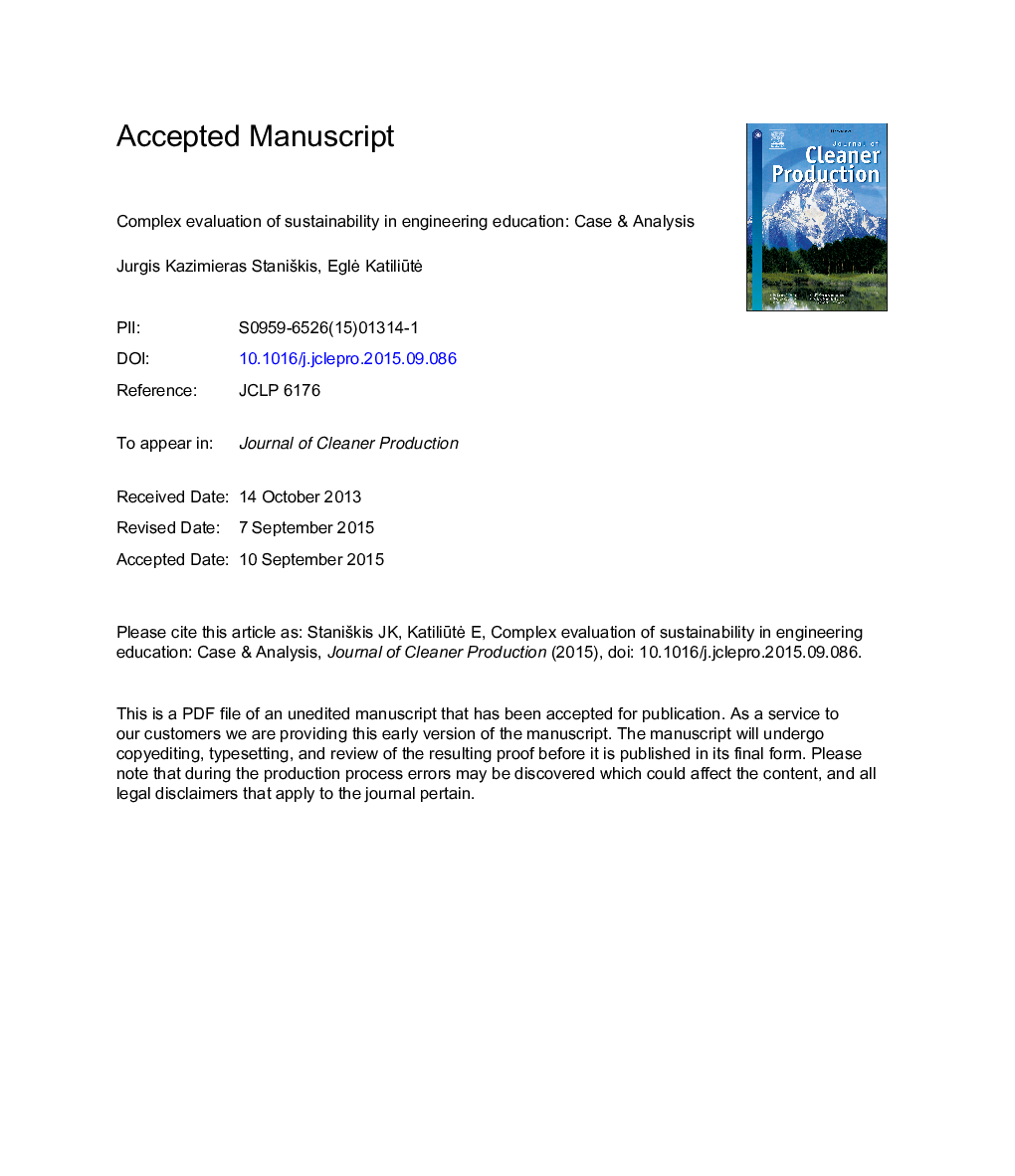| کد مقاله | کد نشریه | سال انتشار | مقاله انگلیسی | نسخه تمام متن |
|---|---|---|---|---|
| 8102445 | 1522129 | 2016 | 15 صفحه PDF | دانلود رایگان |
عنوان انگلیسی مقاله ISI
Complex evaluation of sustainability in engineering education: case & analysis
ترجمه فارسی عنوان
ارزیابی پیچیده پایداری در آموزش و پرورش مهندسی: مورد و تجزیه و تحلیل
دانلود مقاله + سفارش ترجمه
دانلود مقاله ISI انگلیسی
رایگان برای ایرانیان
کلمات کلیدی
ارزیابی، آموزش مهندسی، پایداری، مسئولیت اجتماعی، دانشگاه، صنعت،
موضوعات مرتبط
مهندسی و علوم پایه
مهندسی انرژی
انرژی های تجدید پذیر، توسعه پایدار و محیط زیست
چکیده انگلیسی
The main issue for engineering education is “contextual awareness”, i.e. the ability to view actions, problems, solutions and consequences in a broader context comprising scientific, technical, economic, legal, social or cultural aspects. Engineering education already deals, in varying degrees, with the environment, professional ethics and behaviours, matters of health and safety, as well as discipline - specific problems related to engineering processes and practices. The new objectives lie in the domain known as social responsibility and sustainable development. The QUESTE-SI (Quality system of European Scientific and Technical Education for Sustainable Industry) program initially focused on quality management in engineering education, but during the last two years it shifted to a different issue - the place of social responsibility and sustainability in engineering education. The Institute of Environmental Engineering at Kaunas University of Technology has been selected as a pilot institution for QUESTE - SI evaluation and accreditation process with the M.Sc. program “Environmental Management and Cleaner production” and PhD program “Environmental Engineering and Landscape Management”. The Self-Assessment reporting and external auditing/evaluation have been performed in four dimensions: (i) Organization of social responsibility and sustainability education at the university and institute level; (ii) Education and curriculum of the programs; (iii) Student involvement and cultural development; and (iv) Research & innovation at the institute level. A key point when defining and evaluating learning objectives is whether they include the ability to anticipate the consequences of decisions and to act appropriately (a proactive rather than reactive approach). The paper presents analyses of the selected programs, the methodology, self-evaluation and external auditing process, evaluation criteria and results of the QUESTE - SI evaluation. The complex evaluation and the case clearly show how the high education institution could become a model of sustainable operations, research and development, and sustainability culture. It means a well-defined short, medium and long-term institutional and department strategy for sustainability is needed. The strategy should focus on objectives, planning, implementation, and on results that serve as performance indicators.
ناشر
Database: Elsevier - ScienceDirect (ساینس دایرکت)
Journal: Journal of Cleaner Production - Volume 120, 1 May 2016, Pages 13-20
Journal: Journal of Cleaner Production - Volume 120, 1 May 2016, Pages 13-20
نویسندگان
Jurgis Kazimieras StaniÅ¡kis, EglÄ KatiliÅ«tÄ,
